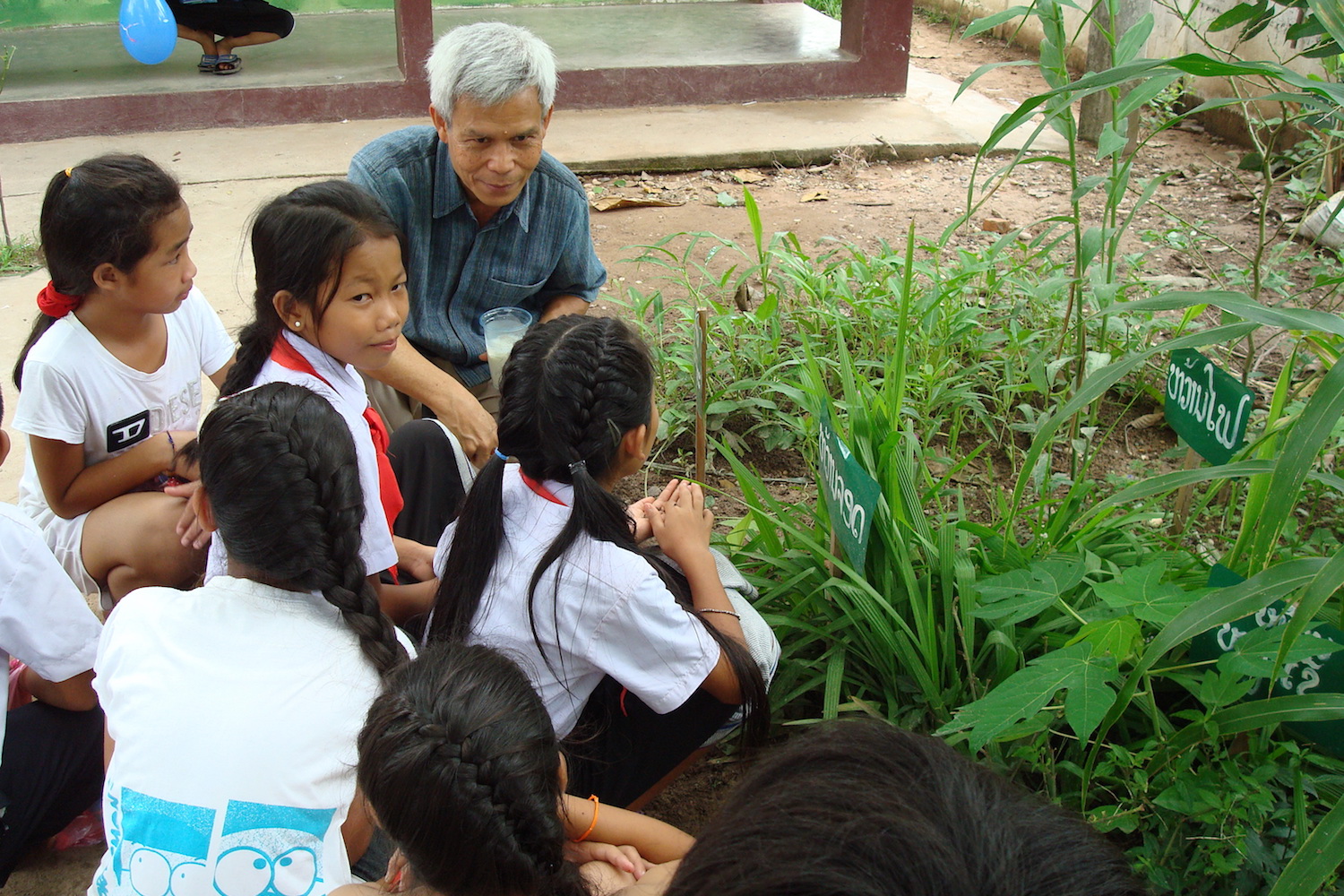Bangkok Post: 07 September 2016

As world leaders, including US President Barack Obama, the heads of state of Asean countries, as well as the UN secretary-general, Ban Ki-moon, gather in Laos, they should ask their hosts: “Where is Sombath?”
My husband, Sombath Somphone, a leading community development advocate, “disappeared” in Laos on Dec 15, 2012.
Even though nearly four years have passed since he was last seen on closed-circuit television footage being driven away from a police checkpoint in Vientiane, the Lao government has continued to stonewall any queries as to his whereabouts and simply maintain “the state is not involved and the police are still investigating”.
Asking the Lao government about Mr Sombath is not just important for him and his family, and not just for the others who have been forcibly disappeared or arbitrarily detained — but also for the well-being of the country and its people.
Many Lao people do not even know about such cases because the highly controlled media does not report on them. For those in Laos who know about this and other human rights violations, many prefer not to talk about what they know for fear of inviting the unwelcome attention — or worse, reprisals — of the security forces.
Laos has historically resisted and been slow to change. Part of the reason is that the Lao Communist Party has had a very slow leadership transition. Many of the top Lao leaders hailed from the first generation of revolutionary fighters. And even after they retired, they still have strong influence over party and government policies and decisions.
For example, even today, former president Khamtay Siphandone, is said to exert substantial influence over major party decisions. Nonetheless, like it or not, mortality is slowly taking its toll on the first-generation leaders. Slowly but surely, one by one many of them have passed on.
It is clear from the 10th Party Congress held in January, the leadership torch is being passed on to a younger generation in both the Politburo and the cabinet.
While the post of party secretary and president is still held by a first-generation revolutionary and a former general, Bounhyang Vorachit, the cabinet has quite a number of younger ministers who are also more educated and less linked to the first-generation old guard. For example, Thongloune Sisoulith, the former foreign minister, a second-generation revolutionary leader, now heads the cabinet as its prime minister and is now the second-highest ranking person in the Politburo.
Would such leadership transition lead to some positive change? Many think so. Since Mr Sisoulith became prime minister in April, he has taken a number of actions that have won cautious praise from the Lao public — for example, he has taken strong actions to halt export of timber and illegal wild life trade; and openly talked about corruption among government officials for causing tax leakages. He also issued a temporary halt on approving any new public infrastructure projects, until after a thorough inspection and report of the status of outstanding projects.
Will this trend continue? Will success in tackling some of these issues give the new government confidence to take on some other “hot button” issues like illegal land concessions; address abuses of forced evictions without proper compensation; stop environmental contamination through indiscriminate use of banned chemicals; and so on?
The more sceptical observers are of the opinion that all these actions are cosmetic and not very different from similar promises made by the previous government when it first came into power. However, the optimists say this time there is some real desire to address the worst forms of corruption and misuse of power by provincial authorities.
This latter group also says that the younger ministers are more open to change and have a more international outlook than many of the old-timers.
The younger ministers are very aware that even though the Lao public would not overtly criticise government abuses, there is real anger among some segments of the population that have been most severely affected by the misuse of power. They are also aware that even if the media inside the country is controlled, many Lao people now have more access to international media and social media. And these younger leaders know that the regime cannot completely block the influence of social media, especially on the young.
Another factor stems from sheer pragmatism: The regime badly wants Laos to become better integrated into the regional and global economy, increase the confidence of investors and to continue to attract donor funds. To do this, Laos needs to improve its business and management image and attract more high-level investments beyond resource extraction-related investments. Laos knows that to attract these kinds of investments, it has to improve transparency in investments laws, foster better and more efficient public management systems and increase human resource capacities.
But what about issues related to human rights, expansion of civil society and democracy? Can we expect much change? Most observers are not too optimistic that there will be much improvement.
Judging from all the extensive preparations done so far, the Lao government badly wants this rare global summit to be a success, and to demonstrate to the world that it is a credible regional economic and diplomatic player.
Therefore, what world leaders say at the summit, especially Mr Obama, have to say will have significant impact on the Lao government and people.
Such dialogue between concerned world leaders with the Lao leadership may not lead to any immediate change on these fronts, but they can at least remind people in Laos that improving its human rights record and relaxing control on civil society will in fact lead to real dividends for improved economic and social development in the long run.
This was always Mr Sombath’s vision for Laos.
Shui Meng Ng is the wife of Sombath Somphone.

